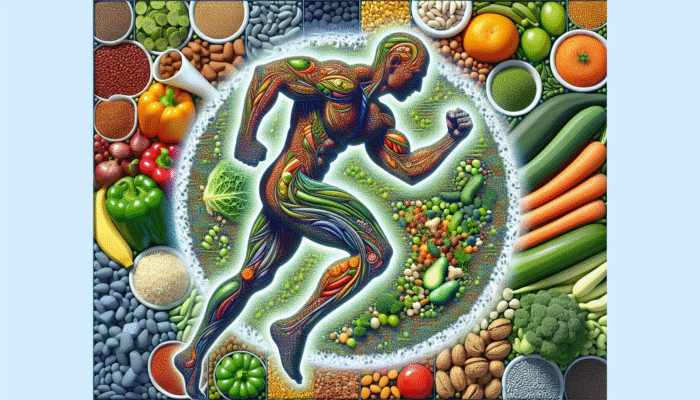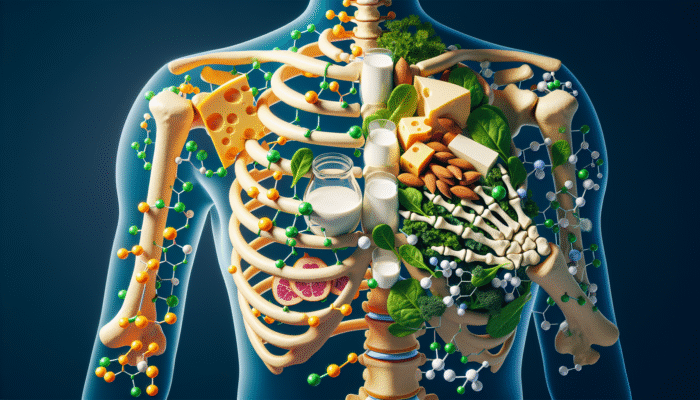Maximising Athletic Performance: Essential Protein Sources for Vegan Athletes
Explore Top Plant-Based Protein Powders to Accelerate Muscle Recovery
For vegan athletes who are committed to achieving peak performance, it is vital to identify and incorporate sufficient protein sources into their everyday meals. This is especially pertinent when following a plant-based diet. High-quality plant-based protein powders such as pea, hemp, and soy are excellent options that deliver concentrated protein, effectively supporting muscle repair and growth. For instance, pea protein is particularly rich in branched-chain amino acids (BCAAs), which are essential for fostering optimal muscle recovery after intense workout sessions. This characteristic makes pea protein especially beneficial for athletes involved in both endurance sports and strength training. Additionally, hemp protein not only provides protein but also essential fatty acids, making it a well-rounded addition to any vegan athlete’s nutritional regimen.
Soy protein is renowned as a complete protein, containing all nine essential amino acids, making it particularly advantageous for individuals aiming to increase muscle mass within a vegan framework. Furthermore, the high digestibility of these protein powders facilitates rapid absorption, making them ideal choices for post-exercise nutrition. The versatility of protein powders allows athletes to easily incorporate them into smoothies, shakes, or even use them in baked goods, helping them reach their protein intake goals without compromising their dietary principles.
When selecting protein powders, vegan athletes should prioritise high-quality options that are free from additives and fillers. Choosing brands that emphasise the use of organic ingredients not only supports personal health but also endorses sustainable agricultural practices globally. Integrating supplements for vegan athletes, such as plant-based protein powders, can significantly enhance their performance and recovery, establishing a solid foundation for a dynamic and healthy lifestyle.
Key Whole Food Proteins to Supercharge Your Athletic Performance
Whole food proteins are integral to a nutritious diet, especially for vegan athletes determined to boost their performance levels. Incorporating nutrient-dense foods like lentils, beans, and quinoa not only provides ample protein but also delivers a broad spectrum of nutrients that are crucial for maintaining overall athletic health. For instance, lentils are rich in protein, fibre, iron, and folate, making them an outstanding option for vegan athletes who require sustained energy and endurance during demanding training sessions.
Different varieties of beans—including black, kidney, and pinto—serve as versatile protein sources that can easily enhance salads, stews, or be blended into smoothies. These legumes are high in complex carbohydrates, providing enduring energy, which ensures that athletes maintain their stamina throughout rigorous workouts. Additionally, quinoa is notable as a complete protein, containing all essential amino acids, which is rare among plant foods. This unique feature makes quinoa especially valuable for individuals who may struggle to obtain a complete protein profile from other dietary sources.
Integrating whole food proteins into daily meals not only aids in achieving protein targets but also promotes dietary diversity. Vegan athletes should consider meal prepping to ensure consistent availability of these protein-rich foods, simplifying the process of regularly consuming adequate amounts. This strategy encourages culinary creativity, allowing athletes to explore global cuisines that highlight these nutritional powerhouses. By prioritising whole food proteins, athletes can create a solid nutritional foundation that fuels their performance while aiding in recovery.
Mastering Protein Timing and Daily Intake for Optimal Athletic Results
Grasping the significance of protein timing is vital for vegan athletes aiming to enhance their performance and recovery. Consuming protein at strategic times can considerably boost muscle synthesis, particularly when aligned with workout sessions. Research suggests that athletes can gain substantial benefits from protein intake within a two-hour window post-exercise, often referred to as the “anabolic window.” During this critical phase, muscles are highly receptive to nutrient absorption, making it the perfect time to replenish with protein-rich foods or supplements.
It is important to focus not only on the total quantity of protein consumed but also on the frequency of intake throughout the day. Spreading protein intake evenly across meals can effectively enhance muscle repair and growth compared to consuming a large amount in one sitting. Vegan athletes should strive for protein intake every few hours, incorporating options like plant-based protein shakes, tofu scrambles, or chickpea salads into their meals for maximum benefits.
Customising protein timing to align with individual training schedules can yield significant advantages. For athletes who participate in early morning workouts, a protein-rich breakfast can initiate recovery and replenish energy reserves. Conversely, those who train in the evenings may find that a protein-dense dinner aids in recovery overnight. This tailored approach to protein intake not only optimises athletic performance but also accommodates individual energy levels and recovery needs, making it an essential component of any vegan athlete’s nutritional strategy.
Crucial Vitamins and Minerals for Vegan Athletes’ Optimal Performance

Maintaining Sufficient Vitamin B12 Levels for Optimal Athletic Performance
Vitamin B12 plays a crucial role in the nutrition of all athletes, but its importance is heightened for vegan athletes since its primary sources are animal products. This vitamin is vital for nerve function and energy production, both of which are essential for sustaining peak performance levels in high-intensity sports. Insufficient B12 levels can lead to fatigue, weakness, and even neurological issues, adversely impacting athletic performance and overall well-being.
For vegan athletes, supplementation is often a necessary strategy to meet their B12 requirements. Many nutritionists advocate for B12 supplements in sublingual formats or through high-quality fortified foods, such as plant-based milks or nutritional yeast. The latter not only supplies B12 but also adds a cheesy flavour to dishes, making it a popular choice among those following a vegan diet. Regular monitoring of B12 levels via blood tests can help prevent deficiencies and ensure optimal athletic performance.
It is crucial for vegan athletes to proactively manage their B12 intake, as the consequences of deficiency can hinder both physical performance and cognitive function. Athletes should educate themselves about the signs of deficiency, which may include mood swings and cognitive decline, highlighting the necessity of maintaining a vigilant approach to B12 supplementation. By prioritising this essential nutrient, vegan athletes can ensure they perform at their peak while safeguarding their long-term health.
Incorporating Iron-Rich Foods and Supplements for Enhanced Energy Levels
Iron is a vital mineral for athletes due to its essential role in oxygen transport and energy metabolism. However, vegan athletes often face challenges in obtaining adequate iron, primarily due to the absence of heme iron found in animal products. Plant-based sources of iron, including lentils, chickpeas, tofu, and fortified cereals, can assist in meeting dietary requirements, but knowing how to enhance iron absorption is equally important.
Pairing vitamin C-rich foods with iron sources can significantly improve the absorption of non-heme iron. For example, enjoying a lentil salad drizzled with a citrus vinaigrette can effectively boost iron uptake. Furthermore, avoiding certain inhibitors like calcium and tannins around iron-rich meals is advisable. This knowledge enables vegan athletes to strategically enhance their iron status, ensuring they remain energised during both training and competitive events.
In certain cases, supplementation may be necessary for individuals with diagnosed deficiencies or increased iron demands due to rigorous training regimens. However, caution is advised with iron supplements, as excessive intake can lead to toxicity. Vegan athletes should collaborate with healthcare professionals to determine if supplementation is warranted, along with the appropriate dosage. By focusing on a diverse diet rich in iron and complementary nutrients, vegan athletes can maintain optimal iron levels to support both performance and overall health.
Calcium and Vitamin D: Cornerstones of Strong Bone Health

Calcium and vitamin D are essential for maintaining strong bones, particularly for athletes who impose significant stress on their bodies through training and competition. While dairy products are common sources of calcium, vegan athletes can obtain this vital mineral from fortified plant milks, leafy greens, almonds, and tahini. Ensuring adequate calcium intake is crucial for preserving bone density and preventing stress fractures during high-impact activities.
Vitamin D works in tandem with calcium to promote bone health by enhancing calcium absorption. However, many individuals struggle to maintain optimal vitamin D levels, especially in areas with limited sunlight exposure. Vegan athletes should consider fortified foods or supplements to achieve optimal vitamin D levels, especially during winter months or in regions with scant sunlight.
Incorporating a variety of calcium-rich foods into daily meals while being mindful of vitamin D intake can markedly improve bone health. Vegan athletes can also benefit from regular bone density screenings to monitor their skeletal health. By understanding and prioritising these essential vitamins and minerals, vegan athletes can protect their skeletal structure, maintain high performance levels, and reduce the risk of injuries associated with weakened bones.
Incorporating Omega-3 Fatty Acids into Your Plant-Based Nutrition
Utilising Algal Oil as a Sustainable Source of Omega-3
Omega-3 fatty acids are highly valued for their anti-inflammatory properties and their contributions to heart and brain health, making them indispensable for athletes striving for peak performance. While fish oil is traditionally recognised as a source of omega-3s, vegan athletes can turn to algal oil as a plant-based alternative that is rich in DHA and EPA. These omega-3 fatty acids are essential for reducing inflammation and supporting cognitive function during both training and competition.
Algal oil is derived from marine algae, providing a sustainable and environmentally friendly substitute compared to conventional fish oil supplements. It serves as a direct source of DHA and EPA, which are often lacking in a plant-based diet. For vegan athletes, incorporating algal oil supplements can help maintain a balanced omega-3 to omega-6 fatty acid ratio, promoting cardiovascular health and minimising the risks of chronic diseases associated with inflammation.
Research indicates that sufficient omega-3 intake can facilitate recovery following exercise by alleviating muscle soreness and expediting repair processes. Vegan athletes should consider including algal oil in their supplement routine, particularly during intense training phases. By focusing on this powerful source of omega-3s, athletes can enhance their recovery processes, ultimately improving their overall performance.
Flaxseed and Chia Seeds: Nutrient-Dense Sources of Omega-3 Fatty Acids
Flaxseed and chia seeds are two of the most accessible and nutrient-rich sources of omega-3 fatty acids within a vegan diet. Both seeds are abundant in alpha-linolenic acid (ALA), a plant-based omega-3 fatty acid that the body can convert into DHA and EPA, albeit at a lower efficiency compared to direct sources like fish or algal oil. These seeds not only provide omega-3 benefits but also offer high levels of fibre, protein, and essential micronutrients, making them an excellent addition to any athlete’s nutrition.
Integrating flaxseed into smoothies, oatmeal, or baked goods not only enhances omega-3 intake but also adds a delightful nutty flavour and texture. Chia seeds, conversely, can absorb liquid and form a gel-like consistency, making them an excellent thickening agent for puddings or a perfect egg substitute in vegan baking. Both seeds can be seamlessly incorporated into various dishes, allowing vegan athletes to benefit from their nutritional properties without compromise on taste or convenience.
Regular consumption of these seeds can also play a role in managing inflammation, a crucial aspect of recovery after intense workouts. By enriching their diets with flaxseed and chia seeds, vegan athletes can readily increase their omega-3 intake and promote overall health, ensuring they perform at their best.
Discovering the Multifaceted Benefits of Omega-3 Fatty Acids for Athletic Performance
Incorporating omega-3 fatty acids into the diets of vegan athletes provides an array of benefits that extend beyond basic nutrition. These essential fats are pivotal in reducing inflammation, particularly significant after strenuous training sessions that can result in muscle soreness and fatigue. Research suggests that athletes who consume adequate omega-3s experience quicker recovery times, allowing them to train with greater intensity and frequency.
Moreover, omega-3 fatty acids are believed to enhance cardiovascular health, which is vital for athletes involved in endurance sports. By improving blood circulation and reducing blood pressure, these fatty acids can elevate overall physical performance and stamina. Additionally, they contribute to cognitive health by enhancing mental functions such as focus and reaction time—key factors for success in competitive sports.
Vegan athletes should aim to include a diverse range of omega-3 sources, including algal oil, flaxseed, and chia seeds, in their diets. This comprehensive strategy not only boosts athletic performance but also supports long-term health, ensuring that vegan athletes can thrive in their sporting pursuits. Therefore, integrating omega-3 fatty acids can be regarded as a strategic investment in an athlete’s health and performance longevity.
Amino Acid Profiles: Key to Success for Vegan Athletes
Recognising the Importance of Essential Amino Acids for Peak Athletic Performance
The nine essential amino acids (EAAs) are fundamental building blocks of protein, crucial for muscle synthesis and recovery, particularly for athletes. Unlike non-essential amino acids, which the body can produce, essential amino acids must be obtained exclusively from food or supplements. For vegan athletes striving for optimal performance, understanding these amino acids and their specific roles can greatly influence training outcomes.
Among the essential amino acids, leucine is particularly noteworthy for its ability to stimulate muscle protein synthesis. Sourcing EAAs from foods such as quinoa, soy products, and various legumes can assist vegan athletes in meeting their protein needs while promoting muscle repair. The importance of a varied diet cannot be overstated, as different plant-based proteins provide diverse amino acid profiles. For instance, combining beans with rice creates a complete protein profile, ensuring athletes receive all essential amino acids.
To maximise the benefits of these essential amino acids, vegan athletes should strive to consume a variety of protein sources throughout the day. This approach not only ensures adequate intake but also supports a balanced nutritional strategy, significantly aiding muscle repair and growth. By concentrating on essential amino acids, athletes can enhance their performance, shorten recovery times, and ultimately realise their fitness goals.
Enhancing Athletic Performance with Branched-Chain Amino Acids (BCAAs)
Branched-chain amino acids (BCAAs)—comprising leucine, isoleucine, and valine—are essential for muscle development and minimising fatigue caused by exercise. These amino acids can be metabolised directly in the muscles, providing quick energy during workouts. For vegan athletes, ensuring adequate BCAA intake can enhance training efficiency and speed up recovery.
Supplementing with BCAAs, particularly around workout times, can yield significant benefits. Research indicates that BCAA supplementation can reduce muscle soreness and damage, enabling more intense training sessions and improved endurance. Vegan athletes often consider BCAA powders derived from plant sources, providing a convenient way to increase intake without compromising dietary values.
Incorporating foods rich in BCAAs, such as soy products, legumes, and nuts, can further support muscle repair and growth. Combining a selection of BCAA-rich foods with supplementation can enhance muscle recovery processes and overall training results. By emphasising the advantages of BCAAs, vegan athletes can effectively elevate their performance and maintain a competitive edge in their respective sports.
Complete vs. Incomplete Proteins: An In-Depth Guide for Vegan Athletes
Grasping the distinction between complete and incomplete proteins is essential for vegan athletes aiming to optimise their dietary practices. Complete proteins contain all nine essential amino acids in sufficient quantities, while incomplete proteins lack one or more of these crucial amino acids. For vegan athletes, recognising and combining various protein sources is vital to achieve a complete amino acid profile.
Quinoa and soy are exemplary sources of complete proteins, effectively satisfying the nutritional needs of vegan athletes. By incorporating these foods alongside an array of legumes, grains, and nuts, athletes can ensure a balanced intake of amino acids. For instance, pairing rice and beans not only provides essential nutrients but also creates a complete protein source, simplifying meal planning.
Vegan athletes should focus on diversifying their protein sources throughout the day to prevent deficiencies and promote optimal performance. Understanding the concept of complementary proteins enables athletes to creatively combine foods, enhancing both nutritional value and flavour. By prioritising complete protein sources, vegan athletes can maintain their strength and endurance, ultimately supporting their performance across a range of sporting events.
Effective Hydration Strategies and Electrolyte Management for Athletes
The Vital Importance of Hydration for Athletic Performance
Hydration, often underestimated, is critical for optimal athletic performance and recovery. Dehydration can lead to decreased endurance, reduced strength, and an increased risk of injury. For vegan athletes, maintaining appropriate hydration levels is essential, especially during intense training or competitive events. While water remains the preferred choice for hydration, understanding the role of electrolytes can significantly enhance overall hydration strategies.
Electrolytes, including sodium, potassium, and magnesium, are crucial for muscle contractions and fluid balance. During extended periods of exercise, particularly in hot or humid conditions, these electrolytes are depleted through sweat. Vegan athletes must replenish not only water but also these essential electrolytes to sustain optimal performance.
Incorporating electrolyte-rich foods such as bananas, avocados, and coconut water into their daily meals can help maintain electrolyte balance. Additionally, vegan-friendly electrolyte beverages can be beneficial during intense workouts or competitions. By prioritising hydration strategies that encompass both fluids and electrolytes, vegan athletes can ensure they perform at their best while minimising recovery times.
Achieving Electrolyte Balance for Superior Athletic Performance
Maintaining an appropriate electrolyte balance is crucial for vegan athletes to prevent cramps and dehydration during physical exertion. Electrolytes are minerals that carry an electric charge, playing a vital role in numerous bodily functions, including muscle contractions and nerve signalling. For athletes, even mild electrolyte imbalances can result in fatigue, muscle cramps, and diminished performance.
Vegan athletes should focus on consuming foods high in electrolytes to ensure adequate intake. Foods such as sweet potatoes, spinach, and chickpeas serve as natural sources of potassium, magnesium, and calcium. Furthermore, consuming a wide variety of fruits and vegetables can help maintain electrolyte levels while providing essential vitamins and minerals.
During prolonged or intense physical activity, electrolyte supplementation may be beneficial. Vegan sports drinks that provide a balanced ratio of electrolytes without animal-derived ingredients can facilitate recovery. By combining proper nutrition with effective hydration strategies, vegan athletes can maintain optimal electrolyte balance, thereby enhancing their performance and recovery.
Selecting Vegan-Friendly Sports Drinks for Optimal Hydration
Choosing the right sports drinks can significantly aid vegan athletes in optimising their hydration and electrolyte intake. There is a growing variety of vegan sports drinks available that deliver essential nutrients without any animal products. These beverages often contain a blend of carbohydrates, electrolytes, and vitamins that help replenish energy levels during and after workouts.
When assessing sports drinks, it is crucial for athletes to carefully examine labels to avoid hidden animal-derived ingredients. Many brands now offer plant-based options that utilise natural flavours and colours, allowing athletes to stay hydrated while adhering to their dietary values.
Beyond commercial options, vegan athletes can create homemade sports drinks by mixing water with a pinch of salt and natural fruit juices. This DIY approach not only provides complete control over the ingredients but can also be tailored to suit individual taste preferences. By prioritising hydration through suitable sports drinks, vegan athletes can enhance their performance and recovery during training sessions.
The Role of Antioxidants in Recovery for Vegan Athletes
Understanding How Antioxidants Support Athletic Recovery
Antioxidants are essential for athletes as they combat oxidative stress and inflammation that arise from intensive exercise. The physical demands of training generate free radicals, which can cause muscle damage and hinder recovery. By incorporating antioxidants into their diets, vegan athletes can enhance their recovery processes and support overall health.
Fruits and vegetables are rich sources of antioxidants, with berries, leafy greens, and brightly coloured produce leading the charge. These foods not only provide antioxidants but also deliver essential vitamins and minerals that boost immune function and mitigate inflammation. For example, vitamin C, found in citrus fruits and bell peppers, is vital for collagen synthesis, which is crucial for muscle repair and recovery.
Integrating a variety of antioxidant-rich foods can significantly benefit vegan athletes. Smoothies loaded with berries or salads featuring a mix of colourful vegetables can help athletes meet their antioxidant requirements. Additionally, considering supplements like vitamin C or E when dietary intake is insufficient can further elevate antioxidant levels, promoting quicker recovery and improved performance.
Exploring Vegan Sources of Antioxidants for Enhanced Athletic Performance
Vegan athletes have access to a broad array of antioxidant-rich foods that can optimise their performance and recovery. Berries—including blueberries, strawberries, and raspberries—are not only delicious but also packed with anthocyanins, compounds renowned for their powerful antioxidant properties. These small fruits can be easily included in smoothies, oatmeal, or enjoyed as snacks, providing a convenient way to boost antioxidant intake.
Nuts, such as walnuts and almonds, also serve as excellent sources of antioxidants, delivering healthy fats alongside their protective benefits. Green tea is another potent vegan source celebrated for its high levels of catechins, which can help alleviate inflammation and promote recovery after exercise.
Incorporating a diverse range of fruits and vegetables into meals guarantees that vegan athletes receive a wide spectrum of antioxidants. A colourful assortment of produce not only boosts nutrient value but also supports overall health and performance. By prioritising antioxidant-rich foods, vegan athletes can effectively combat oxidative stress and facilitate recovery, enabling them to perform at their best.
Maximising Recovery Through Strategic Antioxidant Timing
The timing of antioxidant consumption can significantly impact recovery and performance for vegan athletes. Consuming antioxidants around workout times can help mitigate the oxidative stress triggered by vigorous exercise. Research indicates that aligning antioxidant intake with post-workout nutrition can enhance recovery processes, ensuring that the body is adequately prepared to repair and rebuild muscle tissue.
For instance, a post-workout smoothie filled with berries, spinach, and a plant-based protein source can provide both protein and antioxidants, facilitating muscle recovery while combating oxidative stress. Planning meals that incorporate antioxidant-rich foods before and after workouts can create a powerful synergy that optimises performance and recovery.
Moreover, it is vital to balance antioxidant intake throughout the day. While post-exercise consumption is beneficial, regular intake of antioxidant-rich foods as part of a comprehensive diet will help the body continually combat oxidative stress. By strategically timing their antioxidant consumption, vegan athletes can enhance their recovery while maintaining peak performance levels.
Considering Antioxidant Supplements for Enhanced Recovery
While an antioxidant-rich diet is ideal, some vegan athletes may find it advantageous to explore antioxidant supplements to elevate their levels, especially if dietary intake is insufficient. Supplements like vitamin C and E can provide additional recovery support and may help mitigate oxidative stress associated with rigorous training.
However, athletes should approach supplementation with caution, as excessive intake may lead to adverse effects. Consulting with a healthcare professional or nutritionist can assist athletes in determining if antioxidant supplementation is necessary and suitable for their specific needs.
Incorporating antioxidant supplements can be particularly beneficial during peak training periods or in preparation for significant competitions. By complementing their diets with appropriate supplements, vegan athletes can enhance recovery and performance, ensuring they are ready for any athletic challenge that arises.
Antioxidants: Essential Allies in Muscle Repair
Antioxidants play an integral role in muscle repair by neutralising free radicals that accumulate during physical activity. This process not only protects muscle tissue from damage but also accelerates recovery, allowing athletes to bounce back more quickly between training sessions. For vegan athletes, incorporating antioxidants into their post-workout nutrition is essential for optimal muscle repair.
Foods rich in antioxidants, such as berries, dark chocolate, and green leafy vegetables, can aid in reducing inflammation and facilitating muscle recovery. For example, consuming a post-workout smoothie that incorporates spinach, cacao, and a variety of berries can deliver the essential nutrients needed to counter oxidative stress while providing vital vitamins and minerals that promote overall health.
By prioritising antioxidant intake, vegan athletes can enhance their muscle repair processes, decreasing the likelihood of injury and improving performance. A focus on antioxidant-rich foods, combined with sufficient protein consumption, can create a holistic dietary strategy that nurtures athletic achievement and supports long-term health.
Performance-Boosting Supplements for Vegan Athletes
The Advantages of Creatine Monohydrate for Athletic Excellence
Creatine monohydrate is a well-researched performance-enhancing supplement that can offer significant benefits for vegan athletes looking to boost strength and power output. While creatine naturally occurs in animal products, supplementing with creatine monohydrate presents a vegan-friendly alternative that can greatly enhance athletic performance. This compound increases the body’s ability to produce ATP, the primary energy carrier during high-intensity exercise, making it a preferred choice for athletes engaged in weight training or sprinting.
Research indicates that creatine supplementation can lead to remarkable improvements in strength, muscle mass, and overall exercise performance, particularly in activities requiring short bursts of energy. For vegan athletes, incorporating creatine into their supplement regimen can effectively close the gap left by the absence of dietary sources, empowering them to compete at the highest levels.
When considering creatine supplementation, it is essential for vegan athletes to select high-quality products that are free from additives and fillers. Additionally, implementing loading phases followed by maintenance doses can optimise results, and athletes should consult with a healthcare professional to determine suitable dosages based on personal needs and performance goals. By adopting the right approach, creatine monohydrate can become a transformative element for vegan athletes striving to elevate their performance and achieve their fitness aspirations.
Enhancing Endurance with Beta-Alanine Supplementation
Beta-alanine is a potent supplement that can enhance the performance of vegan athletes by increasing endurance and minimising fatigue. This amino acid is renowned for its capacity to elevate muscle carnosine levels, which helps buffer acid in muscles during high-intensity exercise. Consequently, athletes can experience prolonged performance and a reduction in fatigue, enabling them to endure challenging workouts and attain superior results.
Studies have shown that beta-alanine supplementation can result in substantial performance improvements, particularly in activities lasting between one to four minutes, such as sprinting or high-repetition weight training. For vegan athletes, incorporating beta-alanine into their supplement routine can offer a competitive edge during both training and competitions.
To maximise the benefits of beta-alanine, athletes should consider consistent intake, as its effects accumulate over time. Including a daily dose of beta-alanine alongside other performance-enhancing supplements like creatine can create a synergistic effect that boosts athletic performance. By prioritising beta-alanine supplementation, vegan athletes can improve their endurance and strength, laying the groundwork for success in their respective sports.
Common Questions About Vegan Athletic Nutrition
What are the most effective protein sources for vegan athletes?
The most effective protein sources for vegan athletes include plant-based protein powders such as pea and hemp, whole foods like lentils, quinoa, and beans, as well as soy products.
Is vitamin B12 supplementation necessary for vegan athletes?
Yes, vegan athletes should consider supplementing with vitamin B12, as it is primarily sourced from animal products and is essential for nerve function and energy levels.
How can vegan athletes effectively boost their iron intake?
Vegan athletes can enhance their iron intake by consuming plant-based sources such as lentils, chickpeas, spinach, and fortified cereals, and by pairing these with vitamin C-rich foods to improve absorption.
What benefits do omega-3 fatty acids offer to athletic performance?
Omega-3 fatty acids help to reduce inflammation, support muscle recovery, and promote cardiovascular health, making them vital for vegan athletes striving for optimal performance.
How can vegan athletes ensure an adequate intake of complete proteins?
Vegan athletes can ensure they consume complete proteins by combining various protein sources, such as rice and beans or quinoa and legumes, to provide all essential amino acids.
What is the significance of hydration for athletes?
Hydration is critical for athletes, as it impacts performance, endurance, and recovery. Maintaining proper hydration levels helps to prevent fatigue, cramps, and injuries.
How do antioxidants contribute to recovery for vegan athletes?
Antioxidants help to alleviate oxidative stress and inflammation caused by intense exercise, facilitating faster recovery and supporting muscle repair for vegan athletes.
Are there vegan-friendly sports drinks available for hydration?
Yes, there is a wide selection of vegan-friendly sports drinks available that provide hydration and electrolyte replenishment without any animal-derived ingredients.
What advantages does creatine supplementation provide for vegan athletes?
Creatine supplementation can enhance strength, power output, and overall athletic performance, making it beneficial for vegan athletes involved in high-intensity sports.
In what ways can beta-alanine enhance athletic performance?
Beta-alanine improves athletic performance by increasing muscle carnosine levels, which helps buffer acid during high-intensity exercise, thereby reducing fatigue and boosting endurance.
Connect with us on Facebook!
The Article Supplements for Vegan Athletes: Essential Nutrition Guide appeared first on https://athleticsupplement.com
The Article Supplements for Vegan Athletes: Key Nutrition Essentials Was Found On https://limitsofstrategy.com



